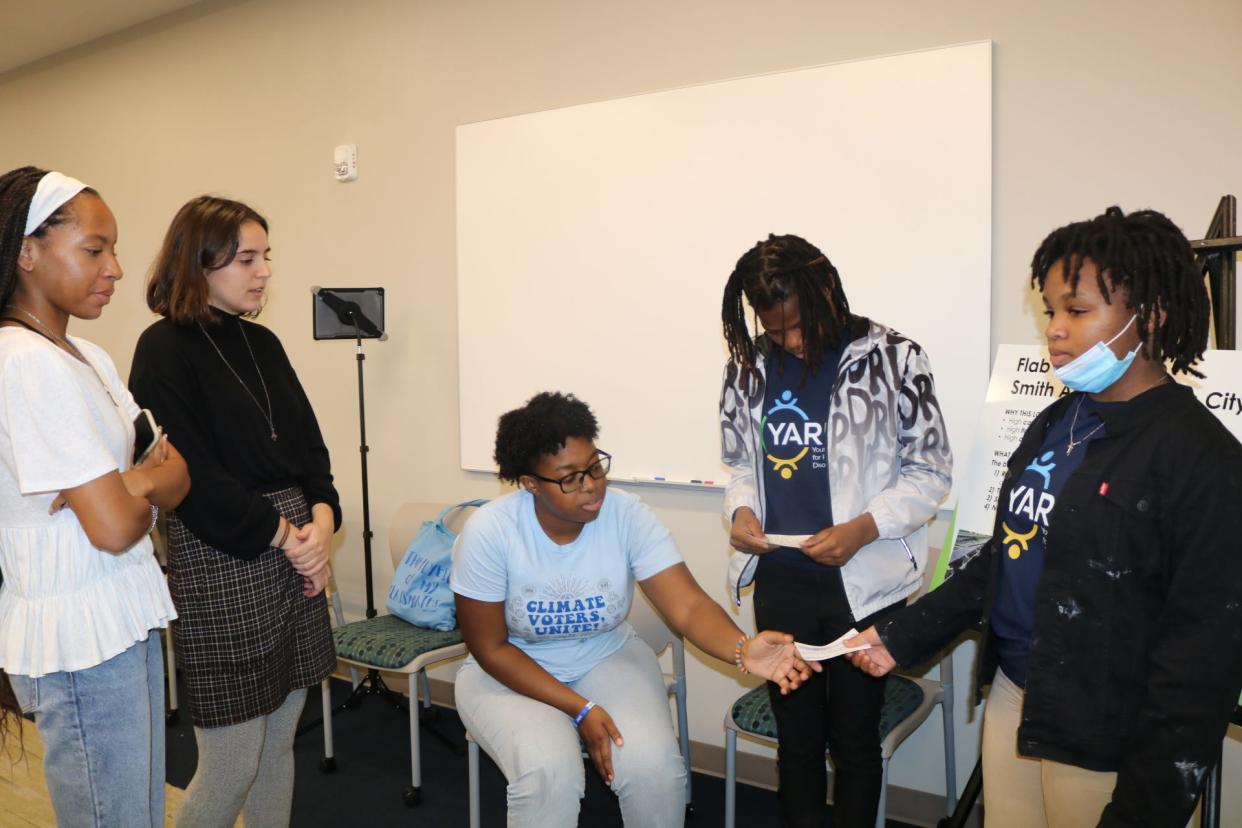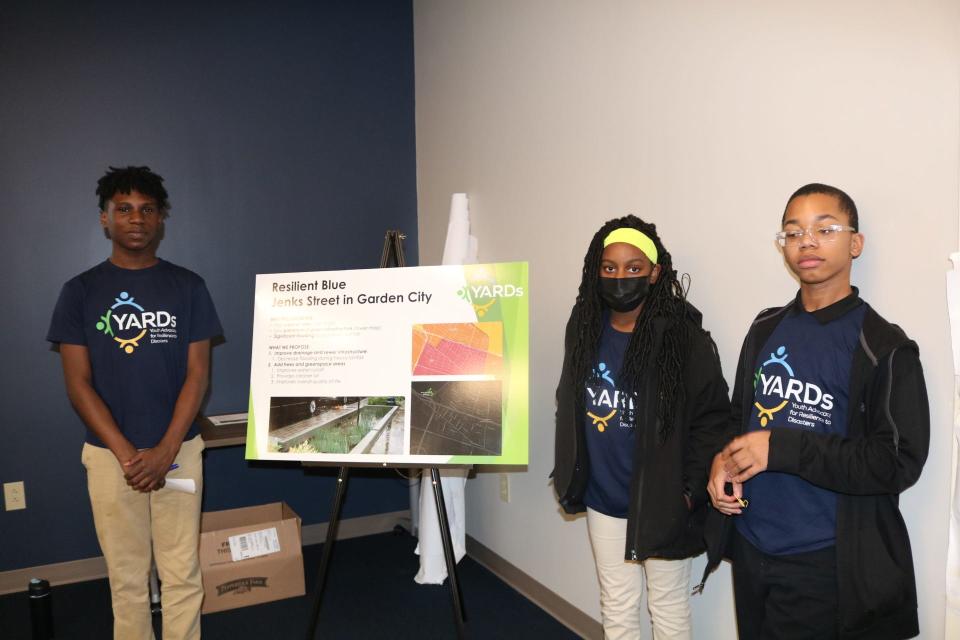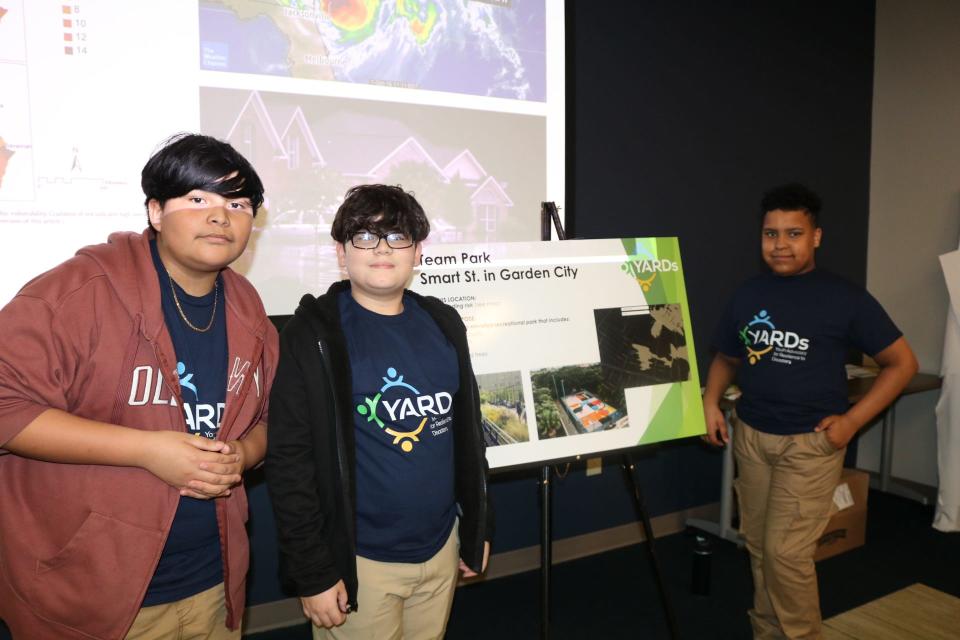Mercer Middle students learn about climate resilience in after-school pilot program

Savannahians are no strangers to flooding, storms and climate change. But its the students at Mercer Middle school who are thinking about how to address flooding and more.
They are part of a pilot after-school program focusing on community resilience in the face of climate change through mapmaking and design.
Youth Advocacy for Resilience to Disasters (YARDs) piloted its first after-school program at the Mercer Middle. The project is led by the Georgia Tech Center for Education Integrating Science, Mathematics, and Computing with research partner Savannah State in collaboration with Savannah Chatham County Public Schools and City of Savannah, among others.
West Savannah: 'Problems are solvable': West Savannah communities endure Georgia Ports' environmental impacts
Climate change on the coast: Stronger storms, longer seasons: How hurricanes will change in Georgia's rising waters
The pilot project served historically-Black communities in west Savannah that have been impacted by the intersection of climate change and social inequalities.
The project teaches sixth- through eight-grade students of color about disaster resilience through the perspective of environmental justice. Students develop virtual mapmaking skills, design solutions to disasters in their community and take those plans and present them to leaders and decision makers.
"Parents and families are often really busy and can't engage in many extra activities, and youth provide a really important connection and link to parents and family networks," said Allen Hyde, principal investigator on the project. "Their voices for change can often inspire action, and [youth] are often left out of many community planning projects, despite being future communities."

Students take the lead
In October 2021, the project received a $1 million National Science Foundation grant under the program's Civic Innovation Challenge. This summer the group hosted a summer camp version of YARDs, and is hoping to learn from this after-school version to continue refining the program and growing it to other schools throughout the state.
On Nov. 29, the students presented their final plans to bolster their community's resilience to disasters. They focused on implementing changes such as green infrastructure – trees and green spaces – and resilience hubs, which would have emergency aid resources like food, water and medical assistance. The students honed in on specific streets or locations in the Garden City and west Savannah region that are particularly affected by issues like flooding, lack of access to medical care and air pollution.

Main issues students studied and researched included flooding, air quality and access to aid during emergencies. Using the Georgia Tech Map Spot tool, the students used maps to learn about data and apply an evidence-based approach to coming up with solutions to improve their community's resilience to disasters.
"I wanted to learn about the community," said eighth-grader Amina Williams about joining the program. "I learned more than I knew before."
Her project partner, sixth-grader Honestee Johnson, agreed that she felt empowered by what they'd learned over the course of the program.
For researchers, improving and expanding the program is the big next step. They will work with the city and county to see how real student plans can be incorporated to concretely affect the change they want to see in their communities.
Marisa Mecke is an environmental journalist. She can be reached at mmecke@gannett.com or by phone at (912) 328-4411.
This article originally appeared on Savannah Morning News: Mercer Middle after-school program teaches students climate resilience

